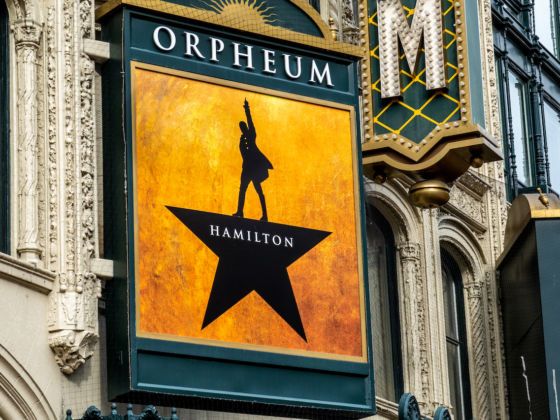Earlier this week, Disney CEO Bob Chapek confirmed that the highly anticipated theatrical release of the live-action remake of Mulan would move ahead as planned on July 24. Spirits bolstered by solid ticket sales at the newly reopened Disney park in Shanghai, Chapek told CNBC, “We very much believe in the value of the theatrical experience overall to launch blockbuster movies,” and that there is a “pent-up demand” for movies to return to theaters. These words sound like the final plea of a desperate man afraid that, post-pandemic, the first societal institution to go will not be the restaurant or the bar — it will be the movie theater.

Hamilton’s Unexpected Early Disney+ Release Proves Movie Theaters Are in Trouble
There’s hardly better proof that the age of the movie theater is over than the fact that Chapek’s own company announced today that it will release the original production of Hamilton starring Lin-Manuel Miranda on Disney+. Disney originally planned to release the movie in theaters on October 15, 2021. Not only is it skipping the highly anticipated theatrical release, but it’s also premiering a full 15 months early on Disney+ on July 3, 2020, when many people will still be sheltering in place.
Tickets to the original cast production of Hamilton once went for $849, so make no mistake, people would have paid to see the filmed production in theaters for a small fraction of the price — at least in a pre-pandemic world. The decision to skip what could have been a lucrative theatrical release, and release it over a year early on a subscription streaming platform, not even on a paid video-on-demand service, is turning the entire system on its head. With no end in sight to the pandemic and the resulting shutdown on societal institutions most people took for granted, the announcement proves streaming is bigger business than ever — and could be the death knell for the movie theater.
Streaming in the time of COVID-19
Surveys since the onslaught of COVID-19 have found that streaming is where the money is, at least while people are sheltering in place: According to a press release from JustWatch Insights, streaming on Netflix has increased 332 percent since March 17, while Neiman found that in the first two weeks of March the time people spent on streaming services grew by 34 percent.
ESPN planned to release it’s 10-part Michael Jordan documentary The Last Dance during the NBA playoffs, which were obviously canceled. It began airing April 19, but the early release date ended up delighting sports starved basketball fans, blessing ESPN with a much-needed ratings boost. Box office flops like Invisible Man and Onward exploded in popularity once they hit on-demand streaming platforms like iTunes.
But no one is more successful in the coronavirus era than Universal, the studio launched Trolls World Tour for on-demand streaming on April 10, bypassing a theatrical release. With kids and parents stuck at home together, the film was a mega-hit, garnering around $100 million in rental fees alone since April 10, CNN reported.
The move inadvertently triggered a feud with AMC theaters, which said it would ban all Universal titles from its theaters “effective immediately.” Universal later promised that the movie would also be released in theaters, once they could safely open again, but AMC shot down the suggestion, writing that it would ban “any movie maker who unilaterally abandons current windowing practices absent good faith negotiations between us, so that they as distributor and we as exhibitor both benefit and neither are hurt from such changes.”
AMC looks especially petty in this situation. Most movie theaters remain closed, and Chapek himself admits limited-capacity screenings will prove challenging for movie theaters on Friday and Saturday nights, typically their most lucrative time slots. In other words: Theaters need the money, and AMC just burned a bridge that could have brought in big business once the pandemic passes.
The future of movie theaters
Chapek seems to be counting on movie theaters reopening to long lines of moviegoers eager to experience the nostalgia of the big screen. Maybe he’s right. Other blockbusters that had to push their theatrical releases due to COVID-19 — like No Time to Die, Wonder Woman 1984, Fast and Furious 9, and Black Widow — are counting on it (for now). There’s also a chance that the obsession with streaming services will end once families can return to the outside world, and their time no longer has to be filled with an infinite Netflix queue. Who knows? The humble drive-in could even make a true comeback.
What seems more likely, though, is that it will slowly begin to dawn on the viewing public that the same movie-going experience can be had at home, where the kids are already comfortable, the snacks are cheap, and you only have to pay for one “ticket” instead of four. And while it’s true that people will be eager to get out of the house (a surge in cruise bookings should prove that), people might still be especially wary of taking their families to theaters, sticky with popcorn butter and fingerprints, with a cleaning process that historically leaves much to be desired. Even with limited capacity-screenings, it might also be irresponsible for studios to encourage people to gather in close proximity at movie theaters, where it would be difficult to enforce social-distancing rules and still turn a profit, or make sure people wear masks for the duration of a two-hour film.
The uptick in streaming entertainment could signal that people are simply ready to enjoy in the safety and comfort of their homes, where they don’t have to worry about spreading or contracting a virus that very well might experience a comeback — and can save money to boot. Movie theaters will be missed — but when this pandemic is over, perhaps people will realize they were becoming obsolete anyway.